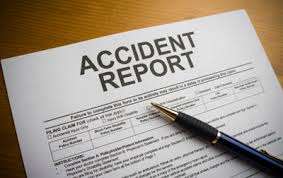Employers’ responsibilities and roles are clearly stipulated in the Act that governs compensation for injuries and disease, the Compensation for Occupational Injuries and Diseases Act of 1993 (COID Act). There are compliance standards stated in this Act that employers must meet regarding the handling of occupational diseases and injuries on duty matters. Employers must play a major role starting from the occurrence of the incident up until claims are paid and the employee recovers. It is important for employers to know their duties so that they are incriminated for negligence.
While Employers’ responsibilities are major in the whole process, they also rely on the co-operation of their employees. Employees should provide employers with information about the incident/disease. The supervisor/health and safety representative must submit an incident report form to their employers detailing the whole incident and it is the Employers’ responsibilities to take it up from there.
According to the COID Act, employers are obliged to perform the following responsibilities.
- The employer must make transport available immediately to take an injured employee to a doctor or hospital. The Compensation Fund pays these costs.
- Written or verbal notice of an injury should be given to the employer before the completion of the shift, where possible.
- It is also the Employers’ responsibilities to 'go ahead'/ authorize an internal investigation to be carried out by his health and safety committee or representative.
- It is the Employers’ responsibilities to report all severe accidents that result in severe injuries, death , injuries that may lead to death or disablement to the Department of Labour.
- The employer must comply with the stipulations that such incidents must be reported within seven days. Non-compliance to this term may result in the employer being fined. (section 24 COID Act)
- It is also the Employers’ responsibilities to submit a claim for compensation to the relevant authority on the prescribed form. The compensation claim must be accompanied by all relevant documents that the Compensation authority may need to be able to process a claim.

Employers’ responsibilities - The injured employee must, on request of the Compensation Commissioner, undergo a medical examination. Employers should ensure all injured employees are given medical attention. The medical certificate is required by the compensation authority. The Compensation Commissioner or other party requiring a medical examination shall be liable for the cost of such examination.
- An employer must ensure that any medical reports or other d
- ocumentation and a certified copy of the employee's Identity document are also be forwarded to the Compensation Authority.
- Employers are also required to meet the compliance standard that states that it is their responsibility to make up payment of 75% of the wages or salary of the injured employee for the first three months after the injury. The amount is refundable by the Compensation Commissioner.
- It is Employers’ responsibilities to pay injured employees in the form of periodical payments not exceeding one month apart. Thereafter payment by the relevant authority (Compensation Commissioner or Mutual Association) continues for as long as the disablement continues, however, not exceeding 24 months.
- If there is a recurrence of the injury which prevents the employee from performing their duties and medical treatment is necessitated by the deterioration, the case may be re-opened, with permission of the Compensation Commissioner, and may continue in terms of the original injury.
Once an incident has been reported, the supervisor/health and safety representative must submit an incident report form to the employer. This form must detail the whole incident. From their it becomes the responsibility of the employer to follow up the matter with the relevant authorities.
While most employers their wide scope of responsibilities are, when an unfortunate incident occurs. This is considered as negligence and non-compliance by the law and employers may find themselves on the wrong side of the law, unknowingly. Don't stay there with pressing issues in health and safety and legal standards constituting it. Become compliant and be on the safe side of the law.
Consult with MAKROSAFE and let them assist you.

Comments (1)
I was injured at work my employer says i must pay money for transport my self because im getting paid when at not working can please advise me on this issue
2021-01-05 23:01:37